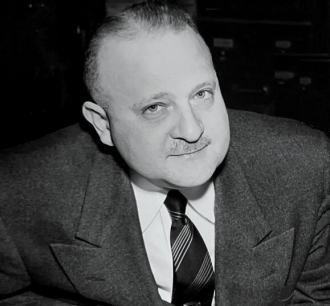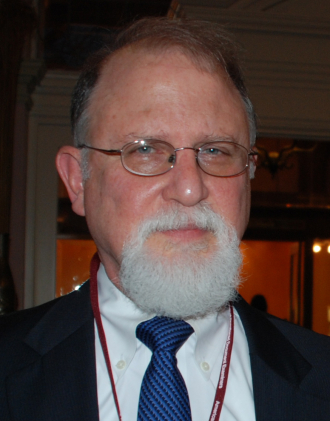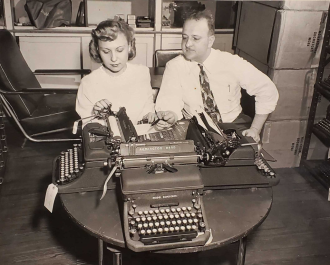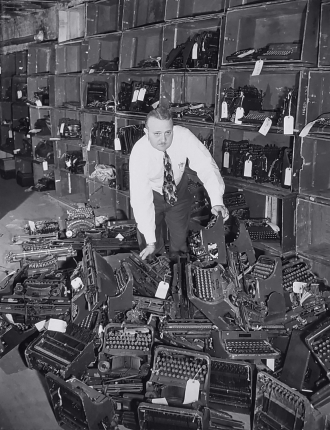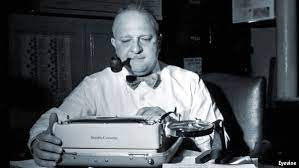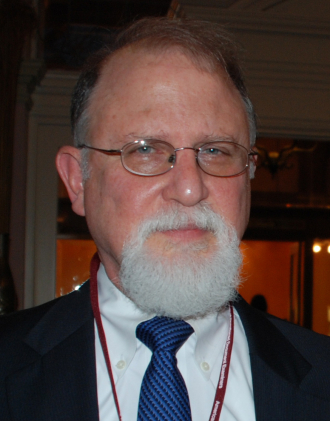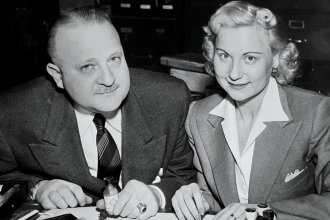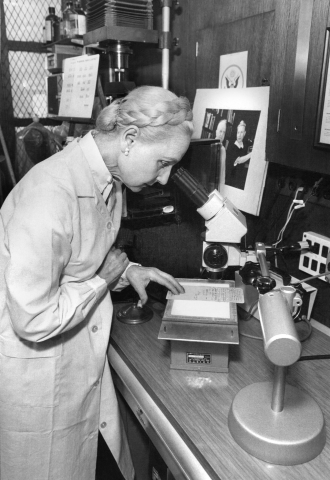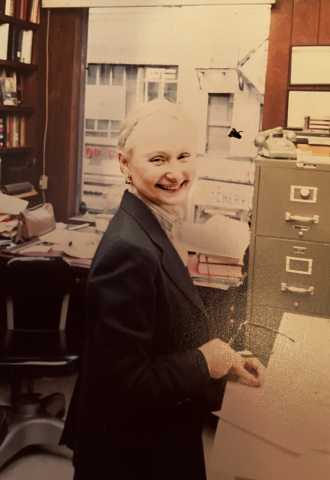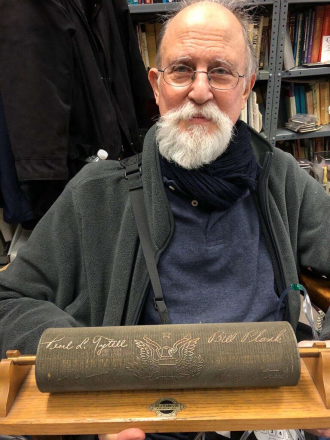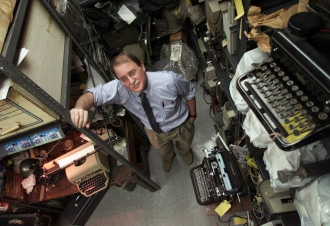Peter V. Tytell, a Typewriter Whisperer, Is Dead at 74
Raised in his parents’ repair shop, he was renowned for resolving disputes over the authenticity of documents, including one that put George W. Bush in a bad light.
By Richard Sandomir
Published Aug. 18, 2020
Updated Aug. 19, 2020, 12:22 p.m. ET
Peter V. Tytell, whose intricate knowledge of typewriters, shaped amid the Olivettis, Underwoods and Royals of his parents’ repair shop in New York, led him to a career as a renowned forensic document examiner and even to a small but important part in the 2004 presidential campaign, died on Aug. 11 at his home in Manhattan. He was 74.
His sister, Pamela Tytell, said the cause was pleural mesothelioma.
Mr. Tytell’s vast expertise in typewriter, paper and handwriting analysis was sought by prosecutors, public defenders, banks, insurance companies and crime laboratories to help resolve disputes over the authenticity of documents.
“Peter could look at one character in a typewritten document and he’d know which machine it was made by,” Samiah Ibrahim, manager of forensic document examination at the Canada Border Services Agency, said in an interview. “The thing about Peter was his recall. He had all these images in his head.”
One of his most famous cases involved the superscript “th.”
In 2004, the midweek edition of “60 Minutes” reported that President George W. Bush had received special treatment while serving in the Texas Air National Guard in the early 1970s. The segment, which aired during President Bush’s re-election campaign against Senator John Kerry, used memorandums said to be from the files of Mr. Bush’s squadron commander, Lt. Col. Jerry Killian, to make its case.
After the documents’ authenticity came into question, CBS convened an independent panel to investigate why the segment had been produced and aired so hastily, and asked Mr. Tytell to examine four documents.
One of the disputed memos that the midweek edition of “60 Minutes” used in a 2004 piece about President George W. Bush and the Texas Air National Guard. Mr. Tytell concluded that the document was fake, in part because the “th” superscript was not consistent with manual typewriters of the time.
Mr. Tytell told the panel that the superscript “th” in the documents could not have been made by the Olympia manual typewriter used in the early 1970s by the Texas Air National Guard. The “th” of the Olympia was underlined and did not rise above the adjacent characters, unlike the “th” in the documents featured in the “60 Minutes” segment. That, plus the proportional spacing and a typeface that closely resembled Times New Roman in Microsoft Word, led him to conclude that the documents were probably created on a computer unavailable in the early 1970s. Soon after the panel delivered its findings in early 2005, CBS fired a producer and three executives for their role in the segment.
In another high-profile legal case, Mr. Tytell was asked in 2011 by Mark Zuckerberg, a founder of Facebook, to examine a two-page work-for-hire contract that Paul Ceglia, a wood-pellets salesman, said entitled him to a substantial stake in the social media giant, which he sought in a federal lawsuit.
Using the tools of his craft — among them hand magnifiers, a stereoscopic microscope, ultraviolet lamps and precision measuring devices — Mr. Tytell demonstrated that the contract showed unusual differences between the typefaces and spacing from one page to the other, suggesting that they had been prepared at different times. He also concluded that attempts had been made to age the pages artificially.
A federal judge dismissed the lawsuit in 2014 on the grounds that the contract was a forgery.
Peter Van Tytell was born on Aug. 13, 1945, in Manhattan and raised in the Bronx. His parents, Martin and Pearl (Kessler) Tytell, rented, repaired and restored typewriters in a shop on Fulton Street in Manhattan whose customers included the broadcasters David Brinkley and Andy Rooney and the writers Richard Condon and Dorothy Parker. Mr. Tytell’s mother also started a forensic documentation examination business.
Young Peter was attracted to the typewriters.
“When he was a young boy, his parents used to take him to the office with them on the weekend,” Tikva Tytell, his wife, said in an email. “His father gave him a can with typewriter parts and he would play with them. He knew how to fix and restore typewriters from an early age.”
By the time he was 11, he was helping out with the forensic work.
In the late 1960s, he left New York for two years to work as a roadie for the Steve Miller Band, Janis Joplin and the Grateful Dead. “He was searching for himself,” his wife said.
He returned to New York in 1970, rejoined his parents’ shop, opened his own forensic business and received a bachelor’s degree from the John Jay College of Criminal Justice.
Mr. Tytell became known internationally as a charismatic investigator and mentor. In 2017 he won the Albert S. Osborn Award for distinguished service from the American Society of Questioned Document Examiners.
“Peter could look at one character in a typewritten document and he’d know which machine it was made by,” one forensics expert said.

